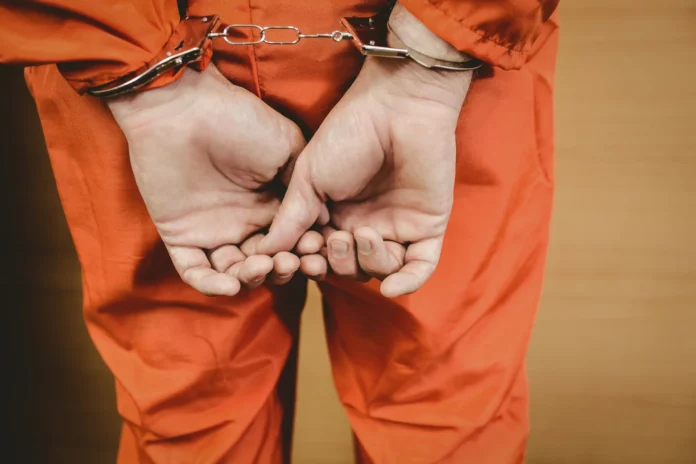High-pressure interrogations and psychological manipulation can make even the innocent confess to crimes they didn’t commit. In cases like these, a Greeley criminal defense lawyer is often the only safeguard against wrongful convictions caused by coercion and fear. Understanding the science behind false confessions is crucial for protecting your rights and preventing injustice in the legal system.
Factors that Contribute to False Confessions
Psychological Pressure and Manipulation
Interrogators often employ sophisticated psychological tactics to elicit confessions. These may include isolation, sleep deprivation, and prolonged questioning, which can wear down a suspect’s mental defenses. Additionally, interrogators might use deception, such as falsely claiming to have evidence linking the suspect to the crime. This combination of stress and misinformation can lead innocent individuals to doubt their memories and succumb to pressure.
Vulnerability of Certain Populations
Some groups are particularly susceptible to making false confessions. Juveniles, individuals with intellectual disabilities, and those with mental health issues may struggle to fully comprehend the consequences of their statements or resist coercive techniques. Moreover, people with a strong desire to please authority figures or those experiencing extreme stress might be more likely to confess to end the interrogation process falsely.
Misunderstanding of Legal Rights
Many suspects fail to fully grasp their Miranda rights, including the right to remain silent and the right to an attorney. This lack of understanding can lead to self-incrimination, as individuals may believe cooperating with police by confessing will result in leniency or release. Furthermore, the complex nature of legal proceedings can overwhelm suspects, causing them to make statements they later regret.
The Consequences of False Confessions
False confessions can have devastating impacts on individuals, the justice system, and society as a whole. When innocent people admit to crimes they didn’t commit, it sets off a chain reaction of consequences that can be difficult to reverse.
Wrongful Convictions and Incarceration
Perhaps the most immediate and severe consequence is an innocent person’s wrongful conviction and imprisonment. These individuals may spend years or even decades behind bars for crimes they didn’t commit, robbing them of their freedom, relationships, and opportunities. The psychological trauma of wrongful incarceration can be profound and long-lasting.
Miscarriage of Justice
False confessions undermine the integrity of the entire criminal justice system. When the wrong person is convicted, the true perpetrator can potentially commit more crimes. This not only fails to deliver justice for victims but also puts public safety at risk.
Erosion of Trust in Law Enforcement
As cases of false confessions come to light, public trust in law enforcement and the justice system can erode. This can lead to decreased cooperation from witnesses and reluctance to report crimes, making it harder for police to solve cases and protect communities.
Financial and Social Costs
Wrongful convictions based on false confessions also carry significant financial costs. Taxpayers bear the burden of lengthy trials, appeals, and incarceration expenses. Additionally, exonerees often struggle to reintegrate into society, facing challenges in finding employment and rebuilding their lives.
Preventing False Confessions: Strategies and Safeguards
Implementing Protective Measures
Law enforcement agencies and legal systems must adopt robust safeguards to combat false confessions. One crucial step is mandating the video recording of all interrogations. This practice ensures transparency and allows for later review of questioning techniques. Additionally, limiting interrogation duration can help prevent psychological fatigue, which often leads to false admissions.
Another vital measure is providing access to legal counsel during questioning. Attorneys can advise suspects of their rights and intervene if interrogation tactics become coercive. Law enforcement should also be trained to recognize signs of mental vulnerability or cognitive impairment in suspects, as these individuals are at higher risk of making false confessions.
Educating the Public and Legal Professionals
Raising awareness about the psychology of false confessions is essential. Public education campaigns can inform citizens about their rights during police questioning and the risks of self-incrimination. Similarly, judges, jurors, and attorneys should receive training on the factors contributing to false confessions and how to evaluate confession evidence critically.
Implementing these strategies can significantly reduce the occurrence of false confessions and protect the justice system’s integrity. By prioritizing accuracy over expediency in criminal investigations, we can better ensure that only the truly guilty are convicted of crimes.
Final Thoughts
The reality of false confessions highlights the urgent need for legal protection and reform. A skilled Greeley criminal defense lawyer can challenge unreliable statements and uphold due process. Having the right legal support can make all the difference when faced with intense interrogation tactics.
